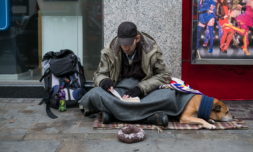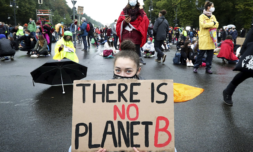COP27 is kicking off in Sharm El Sheikh, Egypt, and will be continuing for the next two weeks. What will the summit address since COP26, and what should world leaders focus on? We spoke to Youthtopia’s Melati Wijsen to find out.
We’re back. It’s another year of COP, this time in Sharm El Sheikh, Egypt.
World leaders will need to discuss pledges, goals, IPCC reports, the ever-growing natural disasters occurring in high-risk areas, as well as the political and logistical setbacks experienced in the past year since COP26.
We had a conversation with Melati Wijsen, co-founder of Bye Bye Plastic Bags and Youthtopia, to discuss the first day of COP27 and the commitments required by world leaders to get things done. If you’re in need of a rundown, you’ve come to the right place.
How can COP27 focus efforts on both the present and the future?
While some success was had at COP26 with regards to leadership engagement and climate pledges, we’ve since experienced shocking weather events that prove action needs to be taken now.
Whether it be the devastating extreme weather across all of Africa, record-breaking heatwaves in the UK, or disruptive flooding in Pakistan, it’s obvious that our climate is changing – fast.
World leaders will need to discuss preventative measures and responses to these types of climate phenomena at COP27, which will become more common in the coming decades. Melati agrees.
‘We know that climate change is here. I’m from Indonesia and we experience it first-hand almost on a daily basis. Changing weather is happening now.’ She also hopes that the decisions made by political leaders and company bosses are ‘rooted in what’s happening now.’
A major focus at COP27 is funding and support for those most affected by extreme weather caused by climate change. Leaders will need to respond to calls for help across Africa, as well as decide who will pay compensation for damages caused by floods and extreme heat.
The UK has already been subject to questions of climate compensation for poorer nations, and we should expect more of this dialogue throughout COP27.
Has political turmoil and logistical difficulties made past promises too ambitious?
The numbers don’t lie. Climate change should be the biggest and most immediate concern for humanity, given that it puts all of us at risk and could eventually cause societal collapse.
That’s easier said than done, however. This year has seen the cost of living spiral, as nations respond and adapt to the ongoing war in Ukraine.
With political turmoil and economic spiralling overshadowing our climate goals, are the current pledges too ambitious or unrealistic? Can we ever really reach them?
Melati thinks we can get things done. ‘Given current circumstances, I think they’re within reach and they should be priority for everyone. If we don’t start focusing on climate change there will be more war and pandemics.’
To that end, she also argues that we need a practical approach that looks at realistic actions that will have a meaningful impact. ‘We generally all understand what the climate crisis is, but there isn’t a strong understanding of what we can do and the role that we play. If we start creating a stronger narrative, those goals are within reach.’
Political leaders will need to be pragmatic and avoid overly fluffy, empty promises that COP has historically been plagued by. Making ambitious pledges with no tangible way forward is a waste of time, and implementation has to be the focus. We’re running out of time to stabilise our climate.




















